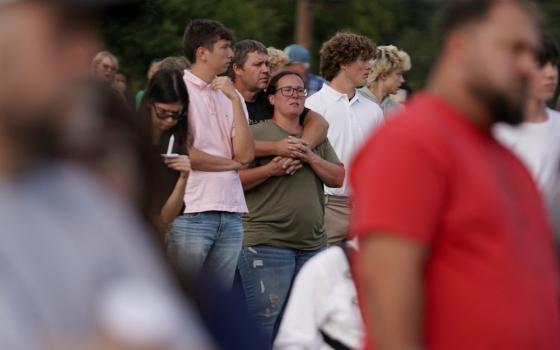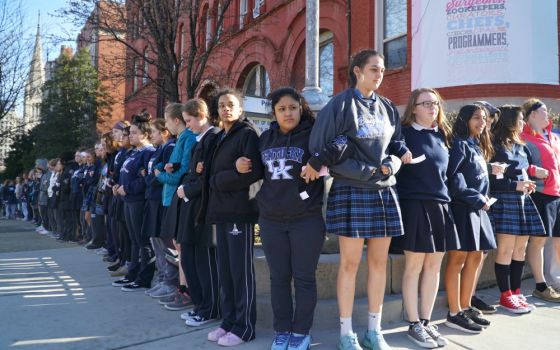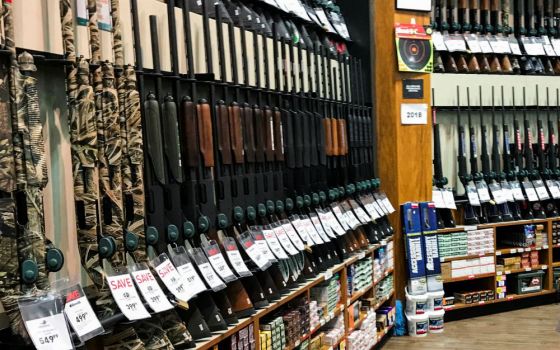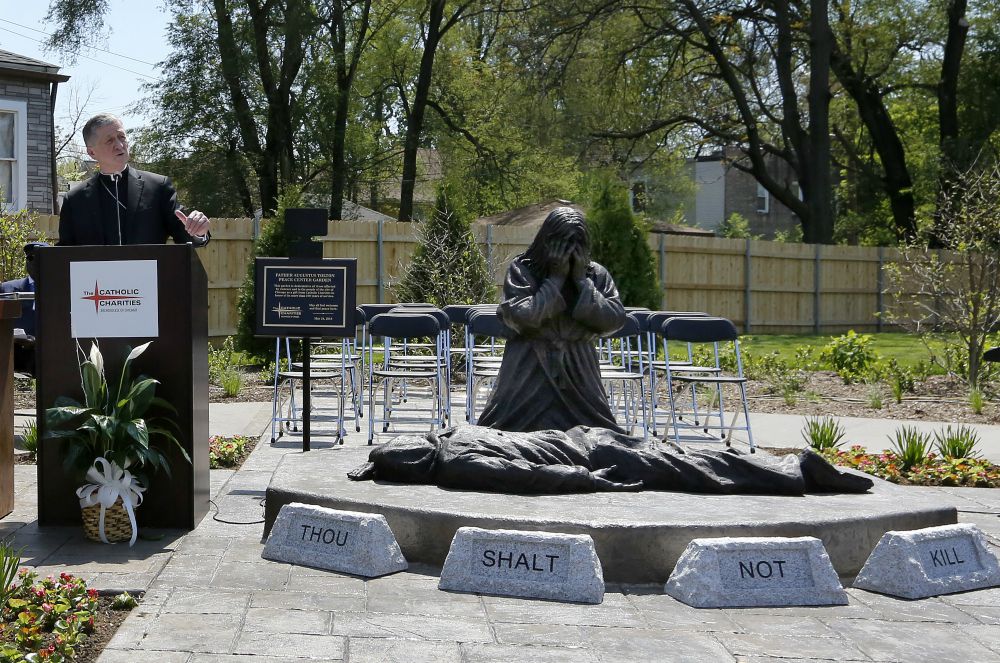
Cardinal Blase Cupich speaks at the dedication of a peace park and new Catholic Charities facility in Chicago's Austin neighborhood May 24. The statue at his left was created by Canadian sculptor Timothy Schmalz, who also created the "Homeless Jesus" statues. (Chicago Archdiocese/Karen Callaway)
The statue in the center of a new peace garden on Chicago's West Side features a grief-stricken Jesus, head in his hands, kneeling over the body of a young man lying face down with bullet holes through his back. The sculptor's message is spelled out in four words on bricks in front of the statue: "Thou shalt not kill."
The striking image likely brings back painful memories for Phil Andrew, who at the age of 20, was a victim of a 1988 shooting rampage that took the life of an 8-year-old student in Winnetka, a suburb on Chicago's North Shore.
Andrew survived being shot in the chest and went on to a 21-year career in law enforcement with the Federal Bureau of Investigation, after serving as executive director for the Illinois Council Against Handgun Violence.
Now he has joined the Chicago Archdiocese in a new position, director of Violence Prevention Initiatives, a task he believes is as much about changing hearts as it is about changing laws.
"This is a scary thing to take on. To talk about violence — gun violence especially — is frightening," he told NCR at the May 24 ceremony dedicating the park and new Catholic Charities facility in Chicago's Austin neighborhood, which has the highest homicide rate in the city, according to Chicago Police Department statistics.
The dedication ceremony came less than a week after a school shooting in Texas in which 10 people were killed.
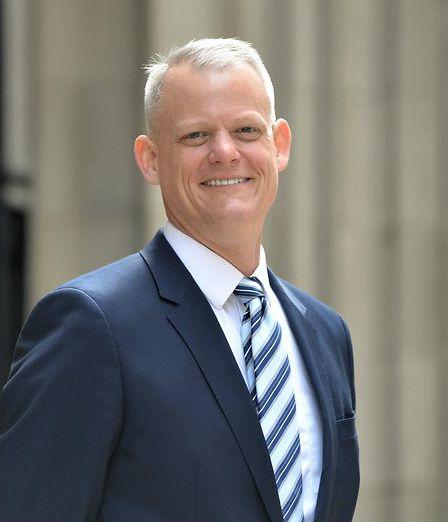
Phil Andrew (Courtesy of DePaul University)
"I'm horrified that we have not done more to protect children," Andrew said. "Our number one job is to protect children, particularly schoolchildren, from gun violence."
Andrew, a member of St. Francis Xavier Parish in the Chicago suburb of Wilmette, believes that solutions to violence, whether in suburban schools or on the streets of the Austin neighborhood, will happen only if people come together and overcome divisions and political polarization.
"The only people who benefit from us being divided is an industry that sells guns," he said.
The programs offered by Catholic Charities and other organizations at the new building in Austin — named for Fr. Augustus Tolton, a former slave and the first African American priest — will address issues of poverty, racism and despair, which is critical to violence prevention, Andrew said.
But stricter gun control laws are still necessary, he said, and the archdiocese is working with other faith and civic partners on legislation that would require universal background checks for those buying weapons, licensing of gun stores and dealers, and allowing law enforcement to take guns away from people considered dangerous.
In addition, Andrew would like to see Catholic colleges and universities do more research on public health and other implications of gun violence.
The lack of movement on gun control "sadly comes down to economics," Andrew said.
"The gun industry and its puppets make a lot of money selling guns. And they have a very effective lobby," he said. "But I think the public — in particular, students — are saying, 'Enough is enough.' "
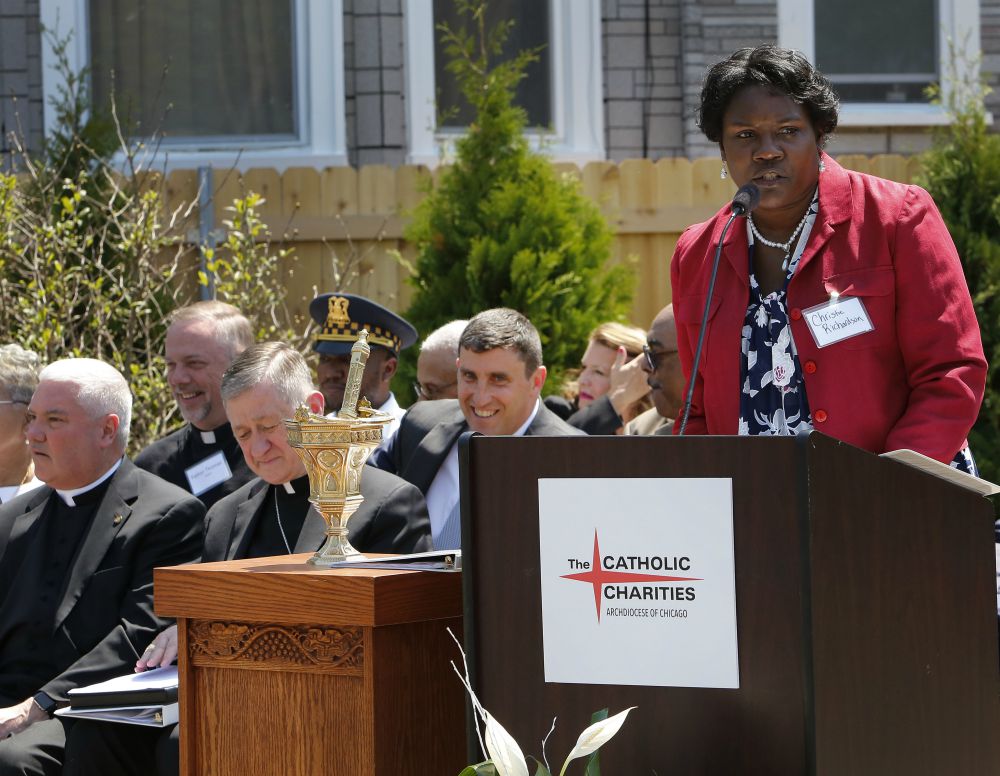
Christie Richardson, WIC Food & Nutrition Program Regional Director at Catholic Charities of the Archdiocese of Chicago, speaks May 24 outside the Fr. Augustus Tolton Peace Center at its dedication. (Chicago Archdiocese/Karen Callaway)
Andrew's charge is to coordinate the archdiocese's various violence prevention resources and programs at parishes, schools or other social service organizations, which can include everything from metal detectors to domestic violence prevention programs.
"The challenge is that this is a complex issue," Andrew said. "It has to do with poverty, lack of access and stigma regarding mental health assistance, and a gun problem. We've also done a very poor job teaching the skills required for navigating conflict."
Parishes and schools need to have crisis plans and "common sense security precautions,' but even those measures start with conversations with all the community stakeholders, Andrew said.
"You can't outsource safety," he said, adding that communities that work together can try to address problems before they lead to violence.
"Of course, you want to do everything you can to be physically secure, but the most important element is creating a culture that cares deeply about keeping a community safe," he said.
The church is actually good at that, he said, citing as an example a restorative justice program at a Chicago parish that he helped expand into a Catholic high school.
"The relationship piece is always the most difficult," he said. "It's very easy to just add security cameras or armed guards, but if you're not out listening to your community, you won't know who needs help and how you can serve them. As our communities become more fractured and more isolated, we become more vulnerable to violence."
Advertisement
Andrew has also spoken out against a proposal by Illinois Gov. Bruce Rauner to reinstate the death penalty for mass murder or killing a police officer. Capital punishment was abolished in 2011 in the state, after a 10-year moratorium. The governor's proposal also calls for extending the waiting period on gun purchases, banning bump stocks and trigger cranks, and using restraining orders to disarm dangerous individuals.
"I don't think that it's good public policy to be mixing the two issues," Andrew said, noting that evidence shows that the gun control policies reduce violence, but does not support any connection between the death penalty and deterrence of violence.
Much of Andrew's job involves listening and communicating, and then coordinating and connecting existing resources among church institutions. The addition of his position sends the message that violence prevention is a priority for Chicago Cardinal Blase Cupich, whom Andrew praises for his "informed moral leadership" on the issue.
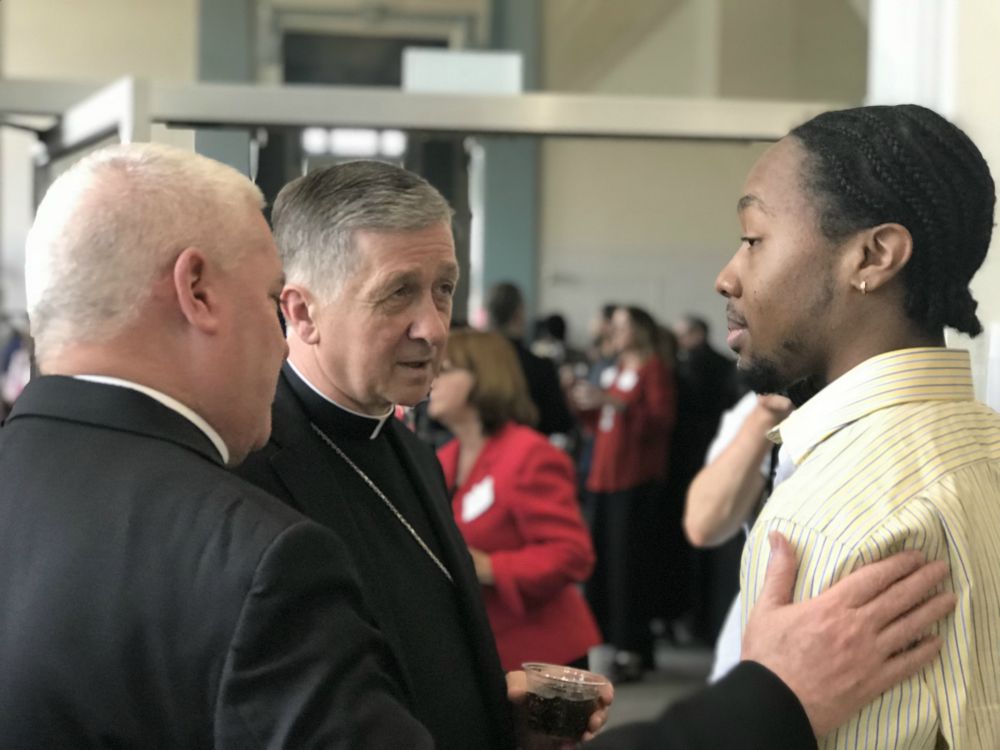
Msgr. Michael Boland and Cardinal Blase Cupich talk to Raquel Brown, who lives in the Austin neighborhood in Chicago where the Fr. Augustus Tolton Peace Center is located. (Chicago Archdiocese/Karen Callaway)
At the dedication of the park and new Tolton Peace Center, Cupich mentioned the archdiocese's anti-violence initiative, which takes a comprehensive approach to the root causes of violence, with employment services, mental health and substance abuse care.
"We want to tell people in the neighborhood: 'We are here with you. We're here to stay,' " Cupich said. "We're here to provide services and resources that are in fact going to make a transformative difference in the lives of people."
As a survivor of violence, Andrew knows that quality health care and other support services literally saved his life — something he believes should be available to all.
"If it weren't for the incredible services I received 30 years, I wouldn't be here," he said.
"I now have the opportunity to take something horribly tragic and improve the lives of others and potentially prevent others from experiencing what I and literally thousands of other people — often the most vulnerable — in our country experience every year," he said.
"Lives can be saved," he said. "This is where the church should be."
[Heidi Schlumpf is NCR national correspondent. Her email address is hschlumpf@ncronline.org. Follow her on Twitter @HeidiSchlumpf.]
This article was funded in part by a generous gift from Tom Bertelsen as a means to support the search for a solution to gun violence in our culture.





